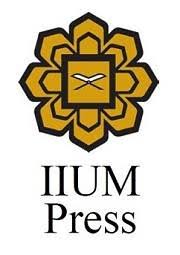RESILIENCE REDEFINED: A QURANIC PERSPECTIVE THROUGH THE STORY OF PROPHET YUSUF
DOI:
https://doi.org/10.31436/alburhn.v9i1.369Abstract
It is commonly known that the concept of resilience, even though familiar to the human brain, could be challenging to implement in daily life. This paper studies the conceptualisation of resilience from two disciplinary perspectives with an emphasis on the significance of the concept through the lens of Islam. This paper is based on chapter twelve of the Quran—Surah Yusuf, which manifested and set the roots for resiliency in Islamic history. In completing this study, the methods of discourse and textual analysis were incorporated to identify, evaluate, and extract lessons of resiliency from Yusuf (Alayhissalam)’s story. A systematic analysis of various journal articles, Quranic texts and tafsirs was employed by using keywords in examining data related to the topic. Findings indicate that Western ideology acknowledges the concept of resilience as the ability to bounce back after facing adversities. On the other hand, Islamic theology argues beyond that as adversities are regarded as a “system of tests” for mankind in attaining spiritual elevation where Islam provides guidance to overcoming them. Three main sub-concepts were found from the story of Yusuf (A.S.), which became the core findings of this research in explaining the concept of resilience: (i) sabr, (ii) shukr, and (iii) taqwa. The paper presents how the three sub-concepts were implied in the life of Yusuf (A.S.) and have been proven to aid the resiliency of an individual. Therefore, this research aims to accentuate and encourage the implementation of being resilient in the life of today’s society.
Keywords: Surah Yusuf, Resilience, Sabr, Syukr, Taqwa.
Downloads
References
AJLabs. (2023). Israel-Gaza War in Maps and Charts: Live Tracker. Received on January 29, 2025.
https://www.aljazeera.com/news/longform/2023/10/9/israel-hamas-war-in-maps-and-charts-live-tracker.
American Psychological Association. Resilience. Retrieved on January 29, 2025. https://www.apa.org/topics/resilience#:~:text=Resilience%20is%20the%20process%20and
Dehghani, Fatemeh & Andishmand, Vida. The Relationship of Religious Orientation and Spiritual Health to Resilience among High School Sophomores in Kerman. Journal of Research on Religion & Health 3, no.: 4 (2017). pp. 66–67.
Dzulkifli, Mariam Adawiyah, & Mahudin, Nor Diana Mohd. (2021) Contextualising Islam in Psychological Research: Theoretical Foundation Current Initiatives & Way Forward. Malaysia - Kuala Lumpur: IIUM Press.
Ibn Kathir (abridged). The Condition of Some of the People of the Scriptures and their Rewards. Retrieved on January 29, 2025.
https://quran.com/3:200/tafsirs/en-tafisr-ibn-kathir
Khan, Maulana Wahiduddin. (2016) Quran Commentary: Understand the Spiritual Meaning of the Quran India: Goodwork Books.
https://openmaktaba.com/tazkir-ul-quran-english/#downloadbutton
Lamoshi, Abdulraouf Y. Religion as a Resilience Tool to Manage Stress in Adolescents: Islamic Approach. Global Journal of HUMAN-SOCIAL SCIENCE: H Interdisciplinary 15, no.: 3 (2015). pp. 5-8.
Mehrabani, Radman Rasooli, & Babayi, Mona. Impressibility of Qul Ali from Bahr Al-Mahabbah and al-Settin al-Jame’ in composing Qissa’i Yusuf. Literary Research (2022). pp. 11-19.
Merguerian, Gayane Karen & Najmabadi, Afsaneh. Zulaykha and Yusuf: Whose “Best Story”?. International Journal of Middle East Studies 29, no.: 4, (1997), pp. 485-508.
Pourkord, Mahdi, Mirdrikvand, Fazlollah, & Karami, Amir. Predicting Resilience in Students Based on Happiness, Attachment Style, and Religious Attitude. Health, Spirituality and Medical Ethics 7, no.: 2 (2020): pp. 27–34.
Qur’an 2:45, 3:200, 12:18, 12:83, 12:101, 12:23, 67:2.
Rak, Carl F. & Patterson, Lewis E. Promoting Resilience in At-Risk Children. Journal of Counselling & Development 74, no.: 4 (1996). pp. 368-373.
Shafi’, Maulana Mufti Muhammad. (2012) Ma’ariful Quran: A Comprehensive commentary on the Holy Quran.
Van Dyke, Cydney J., Glenwick, David S., Cecero, John J., & Se-Kang Kim. The relationship of religious coping and spirituality to adjustment and psychological distress in urban early adolescents. Mental Health, Religion and Culture 12, no.:4 (2009). pp. 369-383.
Windle, Gill. What is resilience? A review and concept analysis. Reviews in Clinical Gerontology 21, no.: 2 (2011), pp. 1-18.
Downloads
Published
How to Cite
Issue
Section
License
In general, reusing or reproducing substantial portions of al-Burhān content requires permission. This includes the use of text, figures, tables, multimedia content, and any other material published in any issues of al-Burhān Journal of Qur'an and Sunnah Studies. For some instances, al-Burhān may make its content freely viewable; however, such material may require permission for reuse. To seek permission, please contact the editorial.









